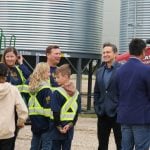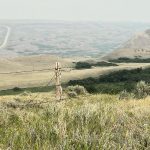
Stories by Doug Ferguson


Developing pulses particular to the Prairies
Ana Vargas and her U of S team are working to develop disease resistance, tall red lentils and drought-resistant fababeans
CALGARY – A scientist who seeks to breed lentils and fababeans that are a better fit for the Canadian Prairies in an era of climate change sees a bright future for the region’s pulse farmers. The ability of such crops to fix their own nitrogen means they require less fertilizer and provide high levels of […] Read more
Company deploys million worms to improve soils
Annelida Soil Solutions of Alta. recently received an innovation award for its soil amendment that is based on worm castings
CALGARY — An Alberta company wants to turn poop from about 80 million worms into a natural superfood for the soil. “Essentially, what we’re doing is using Mother Nature and creating a soil microbiome through our technology,” said Jamie DePape, co-founder and director of sales for Annelida Soil Solutions Ltd. Related stories: Regenerative ag reaches […] Read more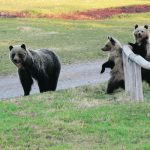
Funding to help reduce large carnivore conflicts
Grizzly bears in particular have expanded their range further east from the Rocky Mountains during the past few years
CALGARY — A program that helps producers minimize conflicts with large carnivores such as grizzly bears, wolves and cougars in a key part of southwestern Alberta will receive $700,000 over five years from the provincial government. Grizzly bears in particular have increasingly been expanding their range further east from the Rocky Mountains during the past […] Read more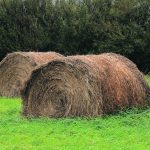
Producer sets out to counter livestock myths
Survey will gather data from 1991-94 and 2016-19 about all aspects of forage production from seeding to the final crop
CALGARY — A researcher is offering $200 to each Saskatchewan cattle forage producer who completes an online survey he expects will help counter what he called false greenhouse gas narratives targeting the beef industry. Judson Christopherson says he hopes to determine if the amount of carbon that’s being sequestered in soil by forage crops in […] Read more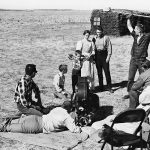
Drylanders film depicted homesteaders’ prairie gamble

Report gives beef sustainability high marks

Alta. considers expanding ag society funding

Combyne uses FieldView data to help market grain
Grain deliveries to be connected back to the fields they originated from and management choices made on those fields
Red Deer — Bayer is making it easier for farmers to track data from seeding to harvest, improving their ability to make better agronomic and marketing decisions. The company recently announced producers can now connect their agronomic data in Climate FieldView with their marketing data in Combyne, which was acquired by the company early in […] Read more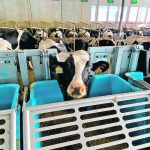
Genetic tool recognized for reducing emissions
Companies receive climate action award for their work in helping develop a way to select cattle that produce less methane
CALGARY — Canadian research that sparked the world’s first official genetic evaluation program to help dairy farmers reduce methane emissions from Holstein cattle without harming milk production has earned an international award for climate action. “The award has been a real team effort, and it’s something that didn’t just come by chance,” said Filippo Miglior, […] Read more



